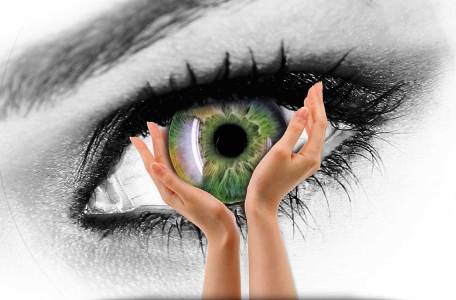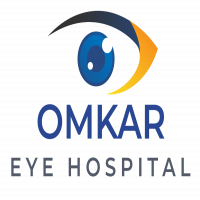How an Eye Specialist Can Help You Manage Common Vision Problems

Strong 8k brings an ultra-HD IPTV experience to your living room and your pocket.
Your eyes are one of the most valuable senses, and maintaining good eye health is crucial for leading an active and fulfilling life. Unfortunately, vision problems are quite common and can arise at any age. Whether you're dealing with blurry vision, eye strain, or even more serious conditions, an eye specialist is the right professional to help manage and treat these issues. In this blog, we’ll explore how an eye specialist can help you address common vision problems, improve your quality of life, and protect your eye health.
1. Addressing Refractive Errors: Nearsightedness, Farsightedness, and Astigmatism
Refractive errors are the most common vision problems, affecting millions of people worldwide. These occur when the shape of the eye prevents light from focusing directly on the retina, causing blurred vision. The three most common refractive errors are:
Nearsightedness (Myopia): This condition causes distant objects to appear blurry while close-up objects are clear. It’s commonly seen in children and young adults.
Farsightedness (Hyperopia): Farsighted people have difficulty focusing on close objects, while distance vision may remain clear.
Astigmatism: This condition causes blurry or distorted vision at all distances due to an irregularly shaped cornea.
An eye specialist (optometrist or ophthalmologist) can diagnose these refractive errors through a simple eye exam. Once identified, they can prescribe corrective lenses (glasses or contact lenses) to improve your vision. In some cases, refractive surgery, such as LASIK, may be recommended to reshape the cornea and reduce or eliminate the need for glasses.
2. Managing Dry Eyes
Dry eye syndrome occurs when your eyes do not produce enough tears or when the tears evaporate too quickly, leading to irritation, redness, and discomfort. This condition is common among older adults, especially women, and can also be exacerbated by certain medications, environmental factors, or excessive screen time.
An eye specialist can assess the quality and quantity of your tears, diagnose the underlying cause of dry eyes, and recommend appropriate treatments. Depending on the severity of your condition, treatment options may include:
Artificial tears: Over-the-counter lubricating eye drops can help keep your eyes moist.
Prescription medications: If over-the-counter drops are ineffective, your doctor might prescribe medication to increase tear production or reduce inflammation.
Punctal plugs: These tiny devices are inserted into the tear ducts to block drainage and keep the eyes moist for longer.
Lifestyle changes: An eye specialist may also recommend lifestyle changes, such as using a humidifier, taking breaks during screen time, or wearing protective eyewear in windy conditions.
3. Treating Eye Infections and Inflammation
Infections and inflammation can affect various parts of the eye, from the eyelids to the cornea. Some of the most common conditions include:
Conjunctivitis (Pink Eye): This condition causes redness, itching, and discharge in the eyes and is usually caused by a viral or bacterial infection.
Blepharitis: Inflammation of the eyelids can cause irritation, redness, and swelling.
Keratitis: An infection or inflammation of the cornea can lead to pain, blurry vision, and light sensitivity.
If you experience any signs of infection or inflammation, an eye specialist will examine your eyes and determine the best course of treatment. Depending on the cause of the infection or inflammation, treatment may involve:
- Antibiotic or antiviral eye drops for infections
- Steroid eye drops to reduce inflammation
- Warm compresses or eyelid cleansers for conditions like blepharitis
Early intervention can prevent complications such as scarring or vision loss, so it’s important to seek professional help as soon as symptoms appear.
4. Managing Age-Related Vision Problems
As we age, certain vision problems become more common. The most common age-related eye conditions include:
Cataracts: Clouding of the lens in the eye that can lead to blurry vision and eventually blindness if untreated.
Macular Degeneration: A condition that affects the central part of the retina (the macula) and can cause central vision loss.
Glaucoma: A group of diseases that damage the optic nerve, often due to high intraocular pressure, and can lead to permanent vision loss if not treated.
If you're dealing with serious vision issues like glaucoma, consulting a trusted glaucoma surgery specialist in Chinchwad can make a significant difference. With expert diagnosis and advanced surgical care, they help manage pressure in the eye and prevent further vision loss effectively. An eye specialist can monitor
your eye health through regular exams and screen for early signs of these age-related conditions. Early detection is key to managing these conditions and preventing severe vision impairment. For example:
Cataracts can often be treated with surgery, where the cloudy lens is replaced with a clear intraocular lens (IOL).
Macular degeneration can be managed with lifestyle changes, nutritional supplements, and in some cases, injectable medications to slow the progression of the disease.
Glaucoma can be treated with prescription eye drops, laser therapy, or surgery to lower intraocular pressure and prevent further damage to the optic nerve.
5. Treating Eye Strain and Fatigue
With the increased use of digital devices, many people experience digital eye strain (also known as computer vision syndrome). Symptoms of digital eye strain include:
- Blurry vision
- Dry eyes
- Headaches
- Neck or shoulder pain
- Difficulty focusing
An eye specialist can help diagnose digital eye strain and provide treatment options to alleviate the symptoms. These may include:
Prescription lenses for screen use: Special lenses designed for digital screen use can reduce eye strain.
The 20-20-20 Rule: An eye specialist will encourage you to take regular breaks from screens by following the 20-20-20 rule: every 20 minutes, look at something 20 feet away for 20 seconds.
Adjusting screen settings: Brightness, contrast, and text size can be adjusted to make your screen easier on the eyes.
6. Pediatric Vision Care
Children may experience vision problems that go unnoticed, potentially impacting their learning and development. Common pediatric vision issues include:
Lazy eye (Amblyopia): A condition where one eye doesn’t develop normal vision, leading to reduced vision in that eye.
Strabismus (Crossed Eyes): Misalignment of the eyes that can lead to double vision or difficulty focusing.
Nearsightedness (Myopia): More children are developing myopia at younger ages due to increased screen time and less time spent outdoors.
An eye specialist can perform eye exams on children and detect any vision issues early. If a problem is detected, treatments such as corrective lenses, eye exercises, or even surgery for conditions like strabismus may be recommended.
Conclusion
From refractive errors to age-related eye diseases, an eye specialist plays a crucial role in diagnosing, treating, and managing various common vision problems. Regular eye exams are essential for maintaining good eye health and addressing any issues early on. Whether you're dealing with dry eyes, digital eye strain, or more serious conditions like cataracts or glaucoma, an eye specialist has the expertise and tools to help you manage your vision effectively.
If you’re experiencing any vision problems in Chinchwad, don’t hesitate to schedule an appointment with an eye specialist. They can help you maintain clear, healthy vision for years to come!
Note: IndiBlogHub features both user-submitted and editorial content. We do not verify third-party contributions. Read our Disclaimer and Privacy Policyfor details.


